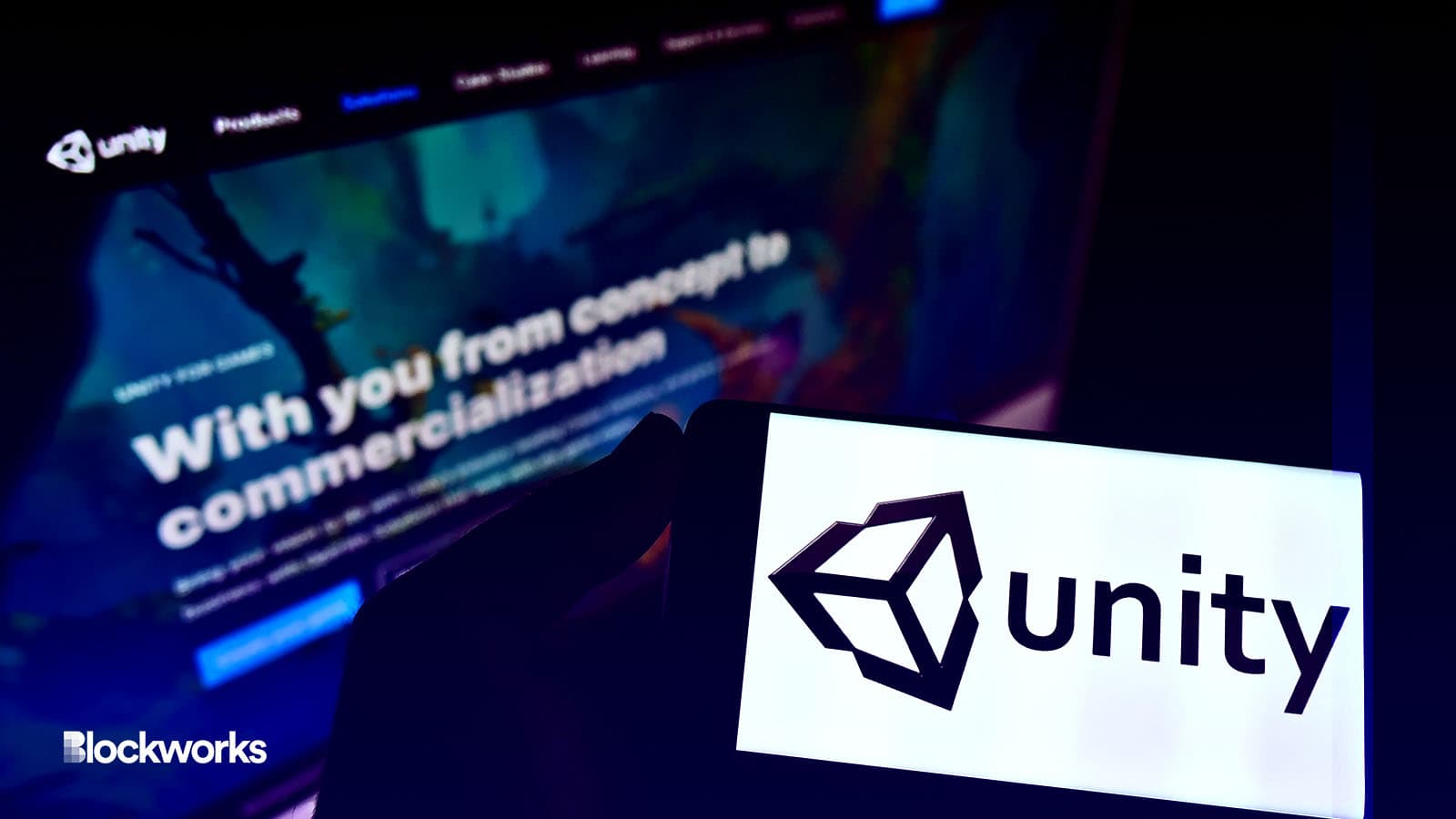‘Historic Move’ for GameFi as Unity Adds 13 Web3 Developer Tools
The addition is expected to encourage a significant influx of mainstream developers to GameFi, cutting down the time it takes to implement blockchain tech into games

T. Schneider/Shutterstock modified by Blockworks
Despite conflicting attitudes from the video game industry towards blockchain-based games that use play-and-earn crypto mechanics and NFTs, Unity Technologies is diving further into Web3.
The renowned and respected player in the gaming industry has added a new category dubbed “decentralization” to its online marketplace and has incorporated 13 blockchain solutions to aid Web3 developers.
SDKs and APIs can now be downloaded from leading blockchain solutions providers listed on the Unity Asset Store, including MetaMask, Algorand, and ImmutableX, among others.
The move is expected to encourage a significant influx of mainstream game developers into the Web3 space, Simon Kertonegoro, CEO of MyMetaverse told Blockworks.
“Everyone in gaming respects Unity,” he said. “They’re the people’s champ.”
A spokesperson for Altura, one of the 13 providers listed, agreed, claiming Unity’s decision will make decentralized gaming much more accessible to its massive audience of players and developers.
Decentralization in video game development generally refers to ownership models of in-game assets, allowing players to create, earn, or obtain resources that can be traded or sold elsewhere.
This is implemented through game mechanics enabling the decentralization of ownership. Smart contracts, virtual wallets, NFTs and crypto are some of the technologies being leveraged to facilitate decentralization in video games.
Big deal or big whoop?
While Blockchain-based games like Alien Worlds and Axie Infinity have become more commonplace, the gaming industry is divided on play-and-earn crypto mechanics and NFTs.
Not all are sold on the idea.
Many major game publishers have blockchain development teams but are struggling to square the tech with their traditional business approach.
Some, like Ubisoft and Epic Games, allow players to buy and sell in-game items using NFTs. Others, like Steam, have banned games that allow NFT and crypto trades altogether due to concerns over volatility and bad actors.
But Steam’s business model presents problems for game developers that Web3 tech may be able to solve.
Despite industry skeptics, the 13 solutions listed are touted as having been “thoroughly reviewed and vetted” to meet Unity’s Verified Solution requirements, according to its decentralization webpage.
Publicly-listed Unity has garnered funding from the likes of Sequoia Capital, Silver Lake, and DFJ Growth in the past. The company saw a 25% increase in year-over-year revenue to $1.4 billion as of Dec. 31, Pitchbook data shows.
It also had an enterprise value of $12.4 billion, as of Feb. 27, making it one of the largest companies in the entertainment software sector.
Founded in Denmark in 2004 and now headquartered in San Francisco, Unity is responsible for creating its flagship product known as the Unity game engine.
The engine is used by game developers and filmmakers worldwide to create 3D environments for a variety of platforms, including desktop, mobile, and console devices.
“It’s one of the biggest players in gaming, for them to show such clear and strong solidarity with the Web3 movement is a truly inspiring moment and a historic move for GameFi,” Kertonegoro said.
Specifically, the Unity Asset Store is an online marketplace where Unity game developers can purchase and download various creative assets to use in their game development projects.
Those assets can include 3D models, textures, animations, audio clips, scripts and tools created by both Unity Technologies and third-party developers.
The significance of the Unity Asset Store lies in the convenience it provides to game developers. Rather than creating every aspect of a game from scratch, developers can use pre-made assets from the Asset Store to save time and resources.
In turn, this allows developers to focus on creating unique gameplay experiences instead of spending excessive amounts of time on asset creation.
With that in mind, Kertonegoro believes the pace of blockchain-based gaming will find its footing once more following a shaky 2022 which saw developer interest in the sector wane.
“Web3 is ready to welcome them with open arms,” he said.
Get the news in your inbox. Explore Blockworks newsletters:
- The Breakdown: Decoding crypto and the markets. Daily.
- 0xResearch: Alpha in your inbox. Think like an analyst.






